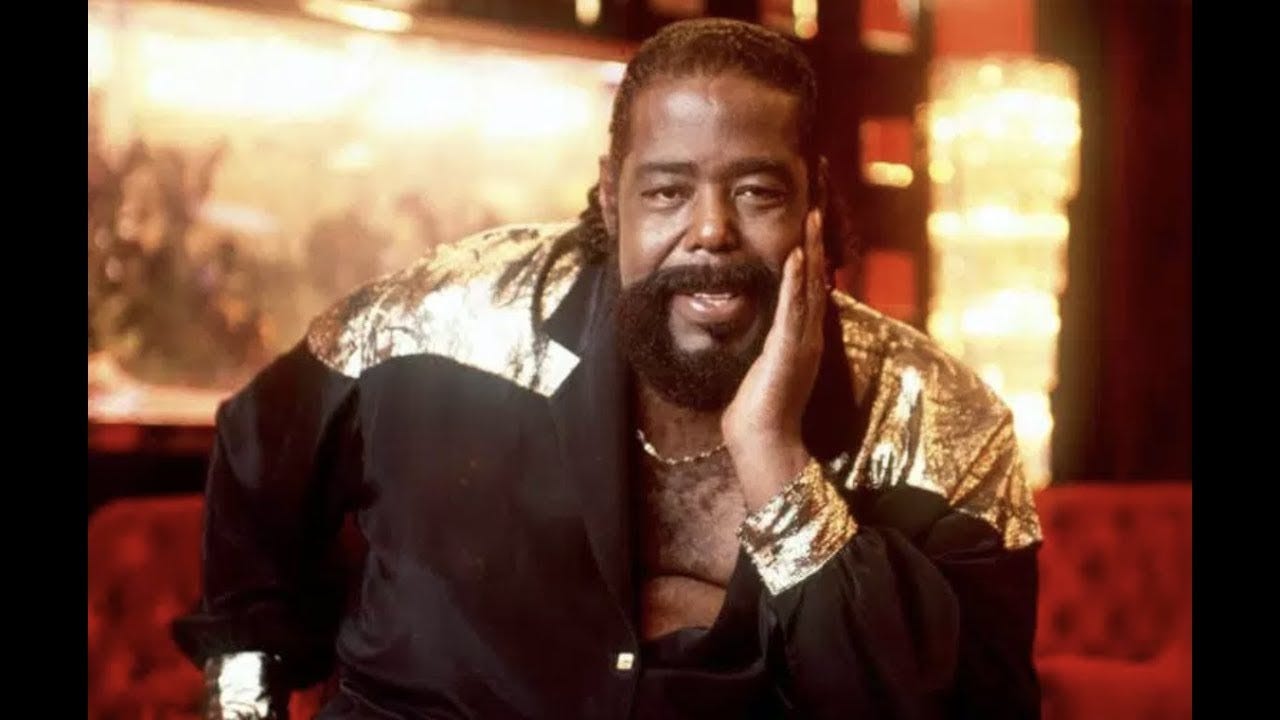Don’t hire Barry White as your CEO
I am going to go out on a limb here.
First, we know that men tend to take bigger financial risks than women and are more dominating (dare I say bullying?) in their professional careers.
Second, we know that men with higher testosterone levels take on more financial risks. This makes sense from an evolutionary perspective. Testosterone is a hormone that triggers fight or flight reactions and aggressiveness in animals and humans. It suppresses pain and fatigue and increases alertness. When faced with a potential predator (or a rival for food), men with higher testosterone levels have a higher likelihood to survive in a fight. Thus, they can take on more risks when searching for food, shelter and a female partner and will likely be rewarded for this risk. Hence, it should come as no surprise that in our modern world, men with a higher testosterone level tend to be more dominant in a professional setting, have better careers, become CEOs of larger companies and as a result make more money. Unfortunately, higher testosterone levels may lead to more dominant behaviour but not to better performance. Hedge fund managers with higher testosterone levels underperform managers with lower testosterone levels by a whopping 5.8% per year when adjusted for risk.
Third, we know that men with higher testosterone levels have a lower voice. This is so, because the level of testosterone during puberty influences the length and thickness of the vocal chords.
You see where this is going?
Theoretically, men with a lower voice should take on more risks when running a company and hence be more likely to run the company into the ground if the environment becomes difficult.
To investigate this connection, a group of researchers analysed CNBC interviews with 167 male CEOs of financial services firms during the financial crisis 2008. They find that male CEOs with a deep voice succeeded particularly in a male-dominated corporate culture and that companies who were led by CEOs with deeper voices were riskier in the year before the interview with CNBC. As banking flourished in the years before the financial crisis, the willingness to take on more risks by the CEO was certainly rewarded, but when the crisis hit in 2008, it left these riskier institutions also with a higher risk to fall off a cliff. And indeed, CEOs with a lower voice were more likely to be fired between 2008 and 2012.
Interestingly, there is some anecdotal evidence that financial institutions cracked down on male-dominated culture and hired a CEO with a higher-pitched voice as was the case for Barclays, where Bob Diamond (voice pitch 111.2 Hz and thus below the cross-CEO average) was replaced by Anthony Jenkins (voice pitch 130.3 Hz and thus above the cross-CEO average). Ironically, Bob Diamond also came from the testosterone-driven environment of the investment bank while Anthony Jenkins had a background in consumer banking.
Summary: You can use the pitch of a man’s voice as a proxy for his behaviour and his risk-taking. If you want to hire a CEO who takes risks that may pay off big time, a deep-voiced man might be just what you need. If, on the other hand, you want a CEO who is more collaborative and doesn’t run the company into the ground if the environment gets more demanding, then a deep-voiced man like Barry White may not be the best choice. Instead, rather go for a man with a higher pitch or – even better – with a woman.
Happy Valentine’s Day to all the women who read this.

PS: If you are German and of a certain age, you might have thought of a song by Die Ärzte which I have been humming all the time while writing this post and can’t get out of my head now…



